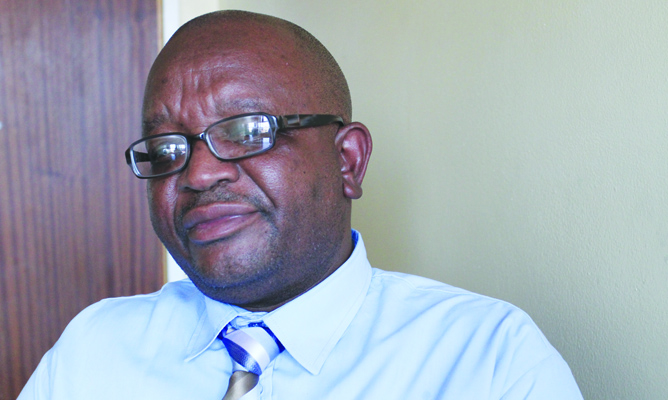
National intelligence organisations such as America’s CIA and Britain’s MI6 keep a close eye on global technological advances as part of their political, economic, social, technological and legal (PESTL) analyses. Through largely covert and some overt operations, these public-funded security organisations, take pride in “knowing things”.
Painona,Tapiwa Nyandoro
Discretion in their art is the better part of valour.
ZimAsset will remain a pipedream unless the authorities in Harare master the mobilisation and leveraging of resources. Apart from good fiscal and monetary policies, they need adequate industrial and commercial intelligence to succeed. Sourcing this intelligence is the duty of every ministry’s permanent secretary and their teams, and every board of directors in both the private sector and the state-owned sector. And of course, the Central Intelligence Organisation (CIO) has a duty to ensure this is done and to assist and lead whenever necessary.
That is the only way to keep abreast of where research and development and its outputs in industrial technological progress, are taking the world’s markets. Industrial progress, be it in agriculture or engineering influences the legal landscape as well as the markets in a virtuous cycle for first movers.
Given Zimbabwe’s struggling economy, the nation hopes the CIO’s economic, technological and legal desks are working overtime. Action on these three landscapes may be the only way of solving, in a sustainable manner, the crises on the political and social landscapes. That Zimbabwe may be failing, in this regard is now common cause.
Elsewhere, the likes of Hans-Jacob Neusser lead the struggle. He is head of research and development at the world’s second biggest automobile manufacturer, VW. In a recent interview with Car magazine (November 2015), he gave his insights into the future of electric vehicles.
According to him, VW’s principal strategy is going electric. “We can no longer wait for additional customer demand, rather we need to define an offering that encourages customers to find their way into electro-mobility.”
- Chamisa under fire over US$120K donation
- Mavhunga puts DeMbare into Chibuku quarterfinals
- Pension funds bet on Cabora Bassa oilfields
- Councils defy govt fire tender directive
Keep Reading
The technocrats in the global car industry mean business. Regulations on emissions are bound to tighten in all major vehicle markets going forward. Ordinarily, that should be good news for platinum producers like South Africa, Russia and Zimbabwe. Platinum is the catalyst used in cleaning vehicles exhaust fumes of noxious gases. But the price of the metal has collapsed. And that should be a worry to the CIO’s technology and economic desks.
The falling price of platinum may have something to do with Neusser’s optimism on the progress being made in battery technology. VW is researching a super battery that would be cheaper, smaller and more powerful than anything currently available. A VW EV (Electric Vehicle) with a range of 300km between charges is now a possibility. That could change the global automobile market within 20 years and kill off or reduce platinum group metals (PGM) mining as an industry. The steel industry too will be affected as EVs have to be light and may be made mostly from aluminum and carbon fibre.
If Zimbabwe Mining Development Corporation (ZMDC) and the CIO have said as much to the Executive, why is there no reaction? Will the platinum mining ventures take off? The Russians and Chinese, potential joint venture partners in these “mega deals” would be aware of the technical developments the German is talking about. They are also aware of the rising legal and social pressures against vehicle emissions in major vehicle markets.
The situation requires government to give incentives to PGM miners and would-be miners as a matter of urgency, and to remove any disincentives such as those created by the Indigenisation Act. The Act also dampens the enthusiasm of coal miners at a time the mineral is now a dirty word in Western financial circles. It is hard enough to raise funds for coal mining and coal fired electricity generating thermal plants without the Act providing a further disincentive. Is Zimbabwe — it must be asked — the victim of its own “patriotic” ignorance?
And that ignorance can also be misleading. A country is left guarding jealously unfashionable assets such as coal, iron ore and diamonds at the expense of tomorrow’s more valuable resources. Two other industries may illustrate the point.
Lithium and lead for battery manufacture will gain currency going forward and so will tin, which is used in electronics. Zimbabwe has deposits for both tin and lithium but it may be a fact authorities’ eyes are off the ball.
Meanwhile, better informed foreigners and, or opportunistic elements within our society, may have staked their claim on both tin and lithium deposits in Zimbabwe. It is time for ZMDC to be wooing via international public tender for a consortium, not only to mine the lithium and tin, but to further research and manufacture the batteries as well, if not the electric vehicles.
In agriculture, although land is a finite resource, advances in farmer professionalism and genetics have helped improve yields. The Zimbabwe cotton industry has collapsed largely due to official resistance to GMO seeds. And yet technology and commercial intelligence suggests that the resistance is folly.
The choice must be left to farmers and consumers. Farmers that intend to grow GMO free crops can be independently certified, while labelling regulations enable the consumer to decide on what to buy. Besides to mitigate biological to commercial risks, GMO free seeds can be safeguarded for posterity, freeze dried, in high tech seed banks, locally and, or abroad.
l Tapiwa Nyandoro can be contacted on [email protected] or [email protected]











